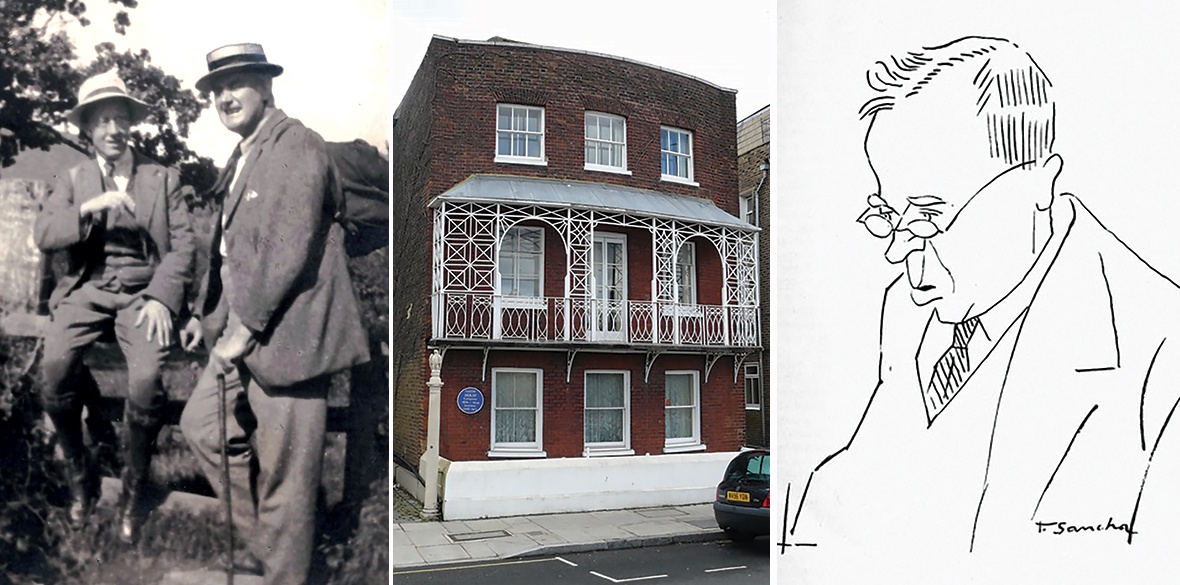This is the last article you can read this month
You can read more article this month
You can read more articles this month
Sorry your limit is up for this month
Reset on:
Please help support the Morning Star by subscribing here
GUSTAV HOLST is a composer who is one of the most obvious demonstrations of a composer known almost entirely for one work — The Planets Suite. Written 1914-17, the composition is a tour-de-force, which sadly is often overlooked because of the likes of Classic FM and others focusing purely on the barn-stomping movement Mars and Jupiter.
On September 21 we will celebrate the 150th anniversary of his birth and for me a high point as he has had a wonderful influence on me throughout my life, particularly when I reflect on what it means to be an English composer.
I got my foundational musical education through brass banding. It was also colliery bands where I learnt a lot of my politics too — chatting to the old boys about their experiences during the ’84-85 strike and other union struggles.
For those unfamiliar with the brass band world, it can at times suffer from being a closed shop. The influence of those composers and musicians does not extend beyond the world of brass band, much like very few classical composers who rarely take the brave leap into working with brass bands and stick around.
Holst, however, is one of the few who not only made the leap, but potentially one of the few who helped bring brass band instruments into the orchestra.
His Moorside Suite originally written for the 1928 National Brass Band Championships of Great Britain, is a work I adore for its ability not only capture the characteristic quality of the brass band, but also shows its not all bombast. The Nocturne in the second movement or the interplay and counterpoint present in the first movement proves the brass band is an ensemble which can musically be on par with any orchestra.
Another quality of this work is Holst’s eagerness to write for working-class musicians. Holst’s political beliefs are not really explored much in texts about him — even his daughter Imogen barely acknowledges this aspect of his life.
However, Holst’s friendship with William Morris, and his involvement with the Hammersmith Socialist Choir refutes this. His Moorside Suite amply demonstrates his enthusiasm for working-class musicians.
The influence of Morris can be seen in Holst’s work more broadly, as the composer and conductor Constant Lambert put it: “There is something about [Holst’s] music both unbearably precious and hearty. It precisely recalls the admirably meant endeavors of William Morris and his followers to combat the products of those dark satanic Mills with unpleasant handwoven materials.”
The US musicologist Byron Adams shares this sentiment, and describes Holst as: “a craftsman par excellence who applied the highest standards of technical accomplishment to bear on each task at hand, no matter how humble.”
This aim for excellence without pretension is a principle that I apply in my own work because as artists we should aspire to make the world better more equal. Morris and Holst embodied this.
For me as a composer, Holst has been a wonderful teacher, be it his Hymns from the Rig Veda or Cloud Messenger.
His devotion to the struggle for peace and condemnation of war are best articulated in Dirge for Two Veterans.
The Idea: Humorous Operetta for Children in Two Acts is a comic delight and an attempt to win children to this music form. Following a terrible decision by the prime minister, the people rise up and win “the assurance from the prime minister that he’ll will never never have another idea.”
Holst made music for amateur and learners alike, his St. Paul’s Suite is one proof like his fascination to explore folksongs to bring into them a new life like in his First Suite in Eb or his Six Chorale Folk Songs.
Holst not only celebrated humanity, but also to engaged with it — his music never becomes aloof or separate from it.
Holst passed away in May 1934, but his influence is present in so many areas. You’ll find it in the film scores of John Williams, the music British composers more broadly, but for the readers of the Morning Star particularly, it is our duty to keep alive that quality which is often ignored. His practical socialism.









